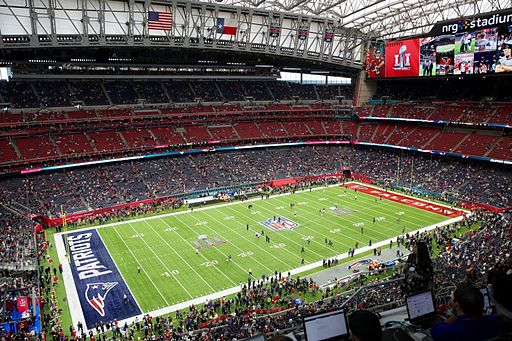Viewpoint: As the Super Bowl Approaches, Consider the Numbers War
Football. As Americans, we can’t live without it. It’s a part of our culture, a part of our identities. For some people, it’s more than a sport: it’s a way of life.
Football is idealized across the country (and in others, as well) as a man’s game. It’s dirty, it’s rough, and it’s dangerous. But that’s what makes it so exciting.

At the beginning of each year, millions of Americans plop down in front of their TVs to watch the event: The Super Bowl. Grown men are running full speed towards each other, in hopes of either blocking or tackling someone. Fun, yes. Violent, yes.
Billions of dollars go into preparing for this game: A-list performers for the half-time show, brand new commercials, and, naturally, fat paychecks for each of the players and coaches.
While other professional sports, baseball and basketball, for example, have plenty of action — and their own kind of violence — football is different.
And football reminds me of something. I enjoy football, don’t get me wrong. My high school worshipped our players, as did my college. (Can I get a Roll Tide?) But still, football reminds me of something. And that something is war.
A far stretch, perhaps, but a comparison nonetheless. Think about it.
Players are eligible to turn professional once three years have passed since they left high school. Soldiers are eligible at the age of 18. Both are trained for combat, both are given strict rules and guidelines to follow, and both are playing another team to win a game.
The major difference: soldiers are prepared to fight to the death. Actual death. And yet, soldiers get paid a reasonably less amount than professional players do.
In fact, a first-year draftee into the NFL can easily make $500,000 or more. Someone in the United States Army with less than two years of experience makes around $20,000 a year. That’s quite the difference.
It takes about thirty years for someone in the military to make what professional sports players can make in five years. Depending on how popular the player, that is. Some have hundred-million dollar contracts. Where is that money in the military?
How can we, as a country, give and spend so much money on sports – not even necessarily always at a professional level – and spend so little on the people actually working to defend our country?
Like I said, I’m here for football. It is definitely enjoyable to sit back and watch a game with friends and family. I even shout at the players through my television sometimes. It’s understandable why we enjoy it the way we do, but it’s not understandable how there are active military members and veterans in crippling debt when professional sports players are driving around in new Mercedes.
The nation’s budget is not in the best shape. In fact, America is over 18 trillion dollars in debt. Trillion. And yet, we continue to pay our athletes more than our troops.




